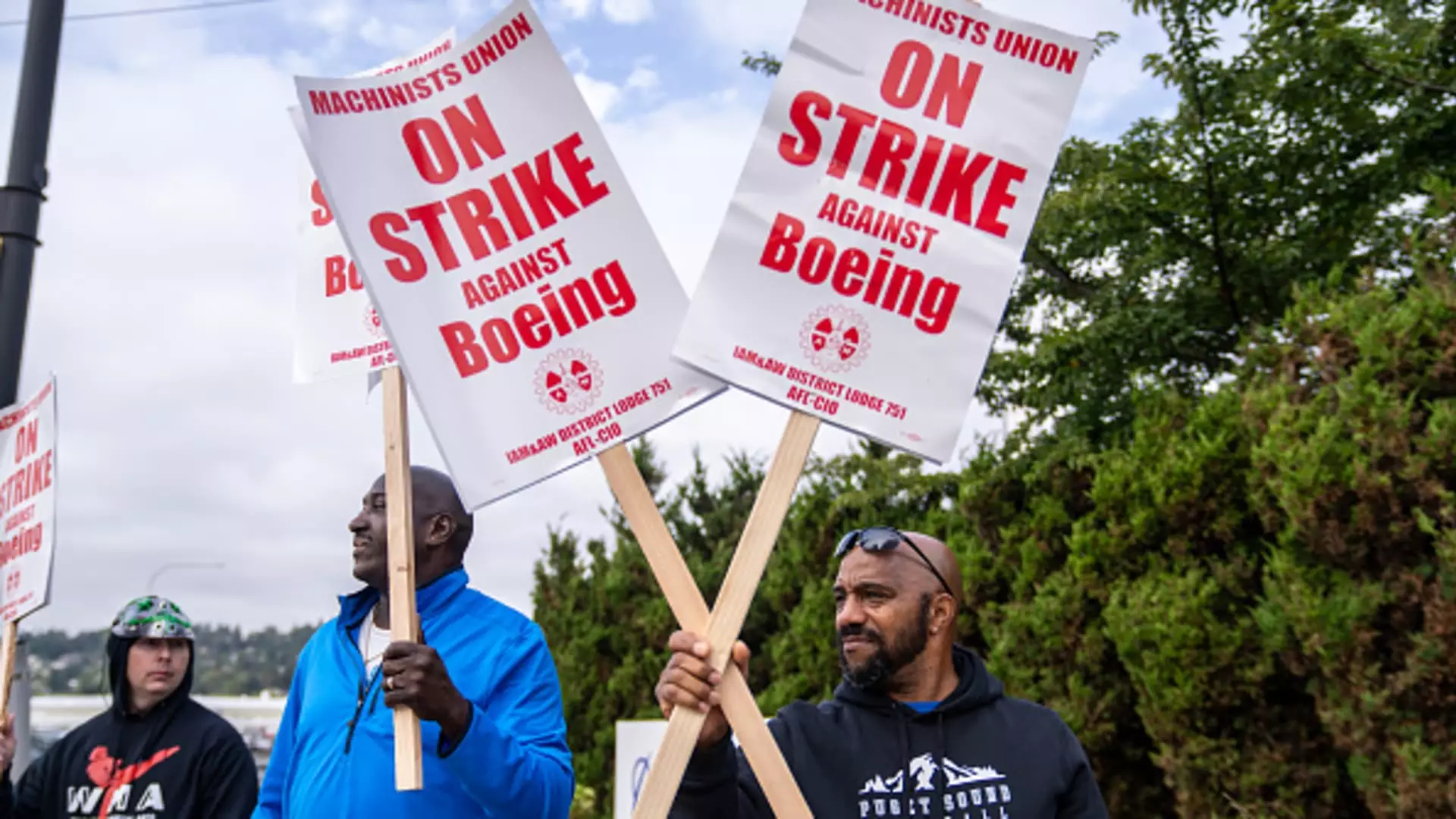In what has become a defining moment for the aviation giant Boeing, tensions have escalated significantly following a workers’ strike initiated by more than 30,000 machinists. The strike, now over a month long, is a striking response to a rejected tentative agreement, which has compounded the financial and operational strains on the company. This situation places tremendous pressure on Boeing’s newly appointed CEO, Kelly Ortberg, who was tasked with navigating through a formidable array of challenges facing the company.
The ramifications of the strike are substantial. According to estimates by S&P Global Ratings, the halt in production has stripped Boeing of over $1 billion in revenue every month. This loss compounds the already troublesome financial report that the company faced at the onset of the year, surfacing after a disastrous incident involving the 737 Max. The dual crises—the two tragic crashes of the 737 Max and now the current labor strike—have left the company teetering on the brink. The production stoppages spread across factories in Seattle and beyond leave Boeing not only cash-strapped but facing a daunting uphill battle to regain its standing in the industry.
Attempts to negotiate a resolution seem to have hit a dead end, as Boeing’s latest offer to the union was met with skepticism and rejection. Despite prior optimism expressed by company officials, the overwhelming opposition from workers—95% against the tentative deal—has signaled a glaring disconnect between the company’s management and its workforce. Experts like Harry Katz, a collective bargaining professor, highlight that adjustments to the company’s offer are non-negotiable. However, key demands, such as the restoration of an old pension plan, are unlikely to materialize, indicating a stalemate that might stretch on for weeks, if not longer.
Labor Relations Under Scrutiny
As talks further deteriorate, tensions have increased. Boeing has accused the International Association of Machinists and Aerospace Workers of bad faith negotiations, a stark accusation that hints at the broader issues of trust between management and union leaders. Jon Holden, president of the striking union, has called for renewed talks, suggesting that Ortberg should explore novel approaches as opposed to resorting to traditional tactics of intimidation. This ongoing discord reflects a deeper malaise in labor relations, challenging any potential path toward a resolution.
Broader Impacts on the Workforce and the Industry
For the striking workers, the loss of pay and benefits has placed many in a precarious position. Unlike past strikes, there are now alternative employment options available within the Seattle region, with job listings ranging from food delivery to warehouse jobs being actively shared among union members. This slight cushion may mitigate some immediate pressures for workers as they await a resolution. However, the long-term implications of ongoing uncertainty remain daunting as Boeing’s management announces a planned reduction of its global workforce by approximately 10% alongside projections of continued financial losses.
Leadership Challenges in the Face of Declining Performance
Ortberg’s leadership is faced with unprecedented challenges, as the financial integrity of Boeing continues to wane. Expected losses reaching nearly $10 a share in the third quarter, alongside projected charges that could total upwards of $5 billion, signify an organization in distress. The company has not seen an annual profit since 2018, and confidence among investors is at a low. The upcoming earnings call will serve as a significant moment for Ortberg, potentially resulting in stock movements and investor attitudes that could further complicate Boeing’s recovery plan.
Boeing stands at a complex crossroads, with the strike serving as both a symptom of deeper issues and a catalyst for potential transformation. The delicate balance between labor relations, financial health, and operational success poses fundamental questions about the future direction of the company. As Ortberg navigates this multifaceted crisis, the company’s ability to reconcile the demands of its workforce while addressing its financial shortcomings will be crucial. Ultimately, the resolution to these challenges will not only shape the fate of Boeing but will also reverberate throughout the aerospace industry, influencing suppliers and partners connected to this venerable manufacturer.

